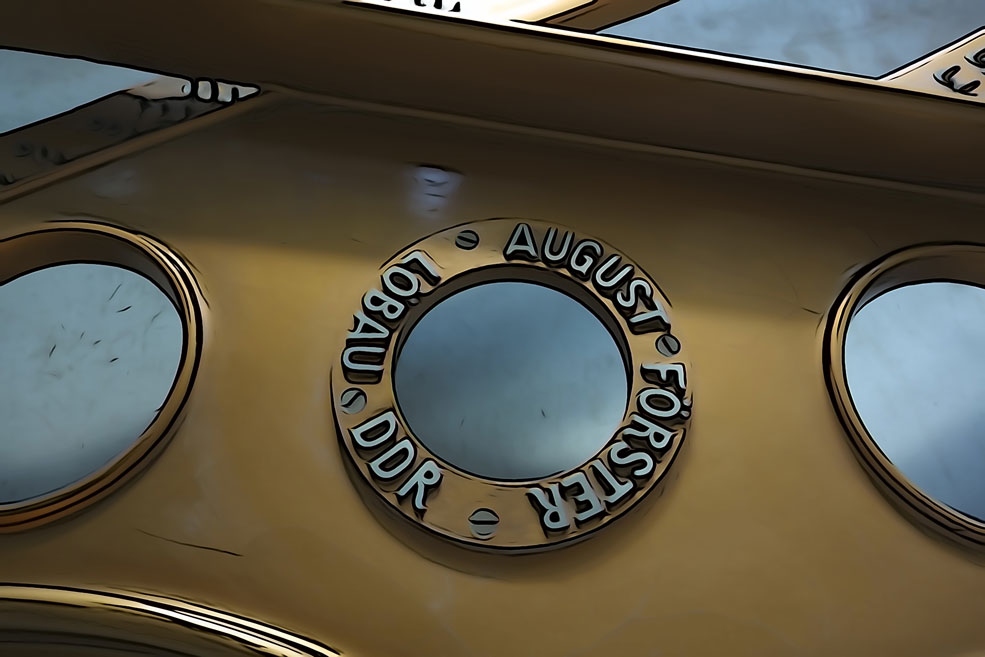A high end piano, while weighing hundreds of pounds, is actually a quite delicate item. The 2 biggest dangers are swings in humidity and improper servicing.
Humidity:
While high humidity (greater than 70%) can cause inconveniences, such as sticking keys, it rarely causes true damange. Besides, in this day and age most homes that have high end pianos have central air conditioning that keeps the humidity in the summer months at a relatively constant level.
Low humidity (less than 40%) can truly damage your piano. This damage can include soundboard cracks, loose tuning pins, action problems and more.
While maintaining a constant humidity level, say 45%, is desirable, it is difficult to achieve. The most critical step is to put an absolute limit to how low the humidity in the room can go. This usually means carefully tracking humidity with a simple hygrometer, available at most hardware stores, and adding humidity by using a humidifier.
It is best to add moisture to a room, using humidifiers that have a large resoivoir to reduce the need to refill and to reduce the chances of going dry for too long. Electrostatic humidifiers, while quiet, have a disadvantage of leaving a white dust. Drum or wick humidifiers need a fan that contributes to noise, but are most effective overall.
In-piano climate control systems can be effective if properly installed and maintained. Usually it is not necessary to use the “heating element” designed to lower high humidity. These devices usually have small reservoirs meaning that you must keep careful track of the water levels. The biggest danger is failing to keep the reservoirs filled leading to a false sense of protection.
Servicing
While all pianos have the same basic parts and construction, the skill levels of piano technicians are not consistent. Getting the most out of your high end piano requires you finding a technician who most importantly has a sensitivity to your brand, and an acute awareness that not all brands of pianos are intended to sound alike.
Tuning
A high end piano should be tuned AT LEAST 4 times a year. This will keep the pitch stable and the piano sounding it’s best. Pianos go out of tune very slowly and you may not notice the tonal deterioration. Do not be fooled by your own ear. The idea that “it still sounds fine to me” has little to do with whether or not the piano actually needs tuning.
A high end piano is designed to respond to very careful, high end tuning. While electronic tuning devices have made great strides, simply using one of these devices is not a guarantee that the tuning will bring the best out of your piano. Most of these pianos sound best when the “octaves are NOT over stretched”. Mention this to your tuner. If he or she looks at you blankly, they may not be able to get the best out of your piano. If they know what you are referring to but argue that stretching the octaves leads to greater brightness and power, then experiment with this approach and with a technician who is more conservative in octave stretching. You may very well find that your piano sounds best with less stretched octaves and that the warmth and sustaining quality more than makes up for any supposed missing power.
If you own one of these fine pianos, it will be worth your while to put some effort into finding the right technician. Tuning technique and skill plays a huge role in the overall tone of your piano.
Regulation
Ideally a piano technician will check and touch up the regulation during each tuning, keeping things from getting too far out of specification and ensuring consistent touch and feel. It is best to work out an arrangement with your technician where he or she spends 30 to 60 minutes during each visit going over the regulation and voicing.This is the technique used to maintain concert pianos and your high end piano will respond well to this approach.
Voicing
Improper voicing by a well meaning technician can quickly ruin the sound of your piano and lead to repairs that might cost thousands of dollars for new hammers. The best source is a recommendation by another high end piano owner or a technician associated with the dealer of a particular line of pianos. Be aware that these makers strive for distinct tone and this tone is very different from the sound produced by most American Steinways. Because a technician is experienced in Steinway DOES NOT necessarily mean he or she is the best choice for your piano. A technician should approach voicing very carefully and respectfully and often the best voicer may be associated with the dealer from whom you purchased your piano. These technicians will often have had specific experience and training on how to get the best tone for your particular brand of piano.
High end European piano hammers should be handled very carefully and should not be lacquered except for very specific purposes. Remember, you bought this particular piano for the way it sounded to you. Treating the hammers carefully will help keep it sounding that way.
